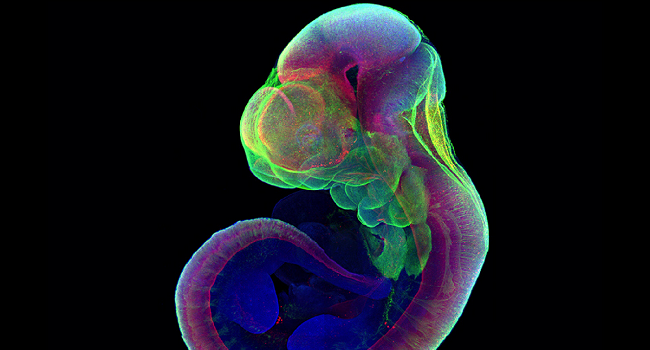Eight healthy babies have been born in the UK through a pioneering IVF method that significantly lowered their risk of inheriting genetic diseases from their mothers, according to findings published on Wednesday.
The results, hailed as a breakthrough, give new hope to women carrying mutations in their mitochondrial DNA who wish to have children without passing on debilitating or fatal conditions.
Mitochondrial diseases, which currently have no cure, affect about one in every 5,000 births. These conditions may cause symptoms such as impaired vision, diabetes, and muscle degeneration.
Britain became the first country in 2015 to approve an IVF technique that combines the mother’s egg and father’s sperm with a small amount of healthy mitochondrial DNA from a donor egg.
Although some have referred to the resulting children as “three-parent babies”, researchers disagree with the term, noting that donor DNA makes up only around 0.1% of the child’s total genetic makeup.
The UK trial’s findings appeared in several papers published in the New England Journal of Medicine.
‘A vital reproductive option’
Of the 22 women treated at the Newcastle Fertility Centre in northeast England, eight babies were born—four boys and four girls—now aged from under six months to over two years.
Researchers reported a 95–100% reduction in mutated mitochondrial DNA, the disease-causing component, in six of the infants. The remaining two showed a 77–88% reduction—still below levels known to cause illness.
This demonstrates that the technique effectively reduced disease transmission from mother to child, one study confirmed.
All eight children are currently healthy, although one experienced a heart rhythm disturbance that doctors successfully treated. Researchers will continue monitoring their health over the coming years.
Nils-Goran Larsson, a Swedish reproductive expert uninvolved in the trial, praised the advance, calling it a “breakthrough”.
He said the method offers a “very important reproductive option” for families affected by “devastating” mitochondrial disorders.
Ongoing ethical debate
Despite its promise, mitochondrial donation remains controversial and is still banned in several countries, including the United States and France.
Some religious groups oppose the technique due to the destruction of human embryos involved. Others fear it could lead to genetically modified “designer babies”.
The UK’s Nuffield Council on Bioethics played a key role in reviewing the ethical considerations before researchers proceeded. The council’s director, Danielle Hamm, described the review as “instrumental”.
Peter Thompson, head of the UK’s Human Fertilisation and Embryology Authority, which approved the procedure, stressed that only people at “very high risk” of passing on mitochondrial disease would qualify for treatment.
Concerns have also arisen over the use of mitochondrial donation for infertility cases in Greece and Ukraine.
Julie Stefann, a French specialist in mitochondrial diseases, told AFP, “It’s a matter of risk-benefit balance: in the case of mitochondrial disease, the benefit is clear. In infertility, it’s not yet proven.”
Dagan Wells, a reproductive genetics expert from Oxford University, noted some disappointment within the scientific community that the extensive research has so far produced only eight births.
Three of the children have shown signs of “reversal” — a process where the initially low levels of defective mitochondria rise significantly by birth. Scientists still do not fully understand this phenomenon and will
continue studying it in the coming years.



